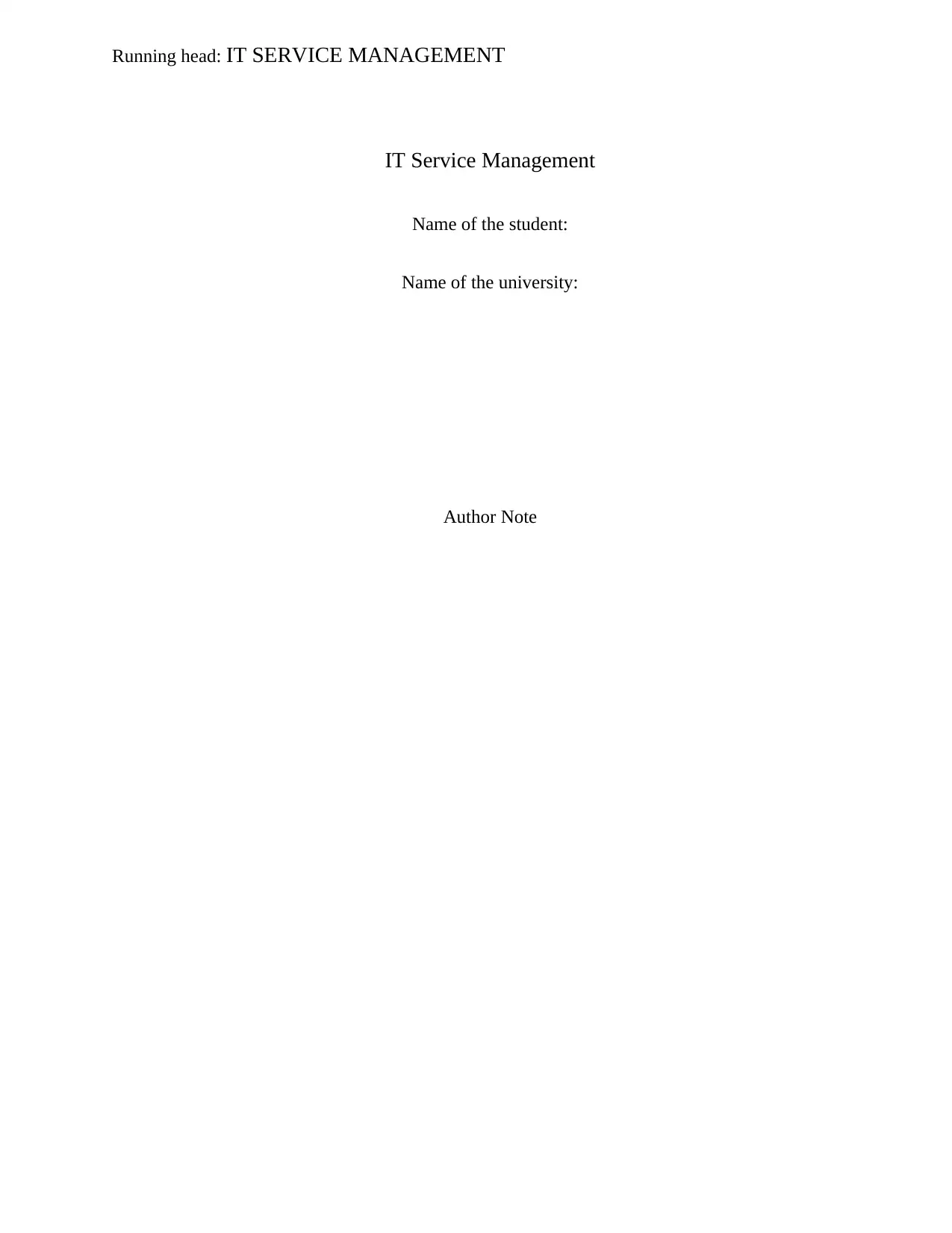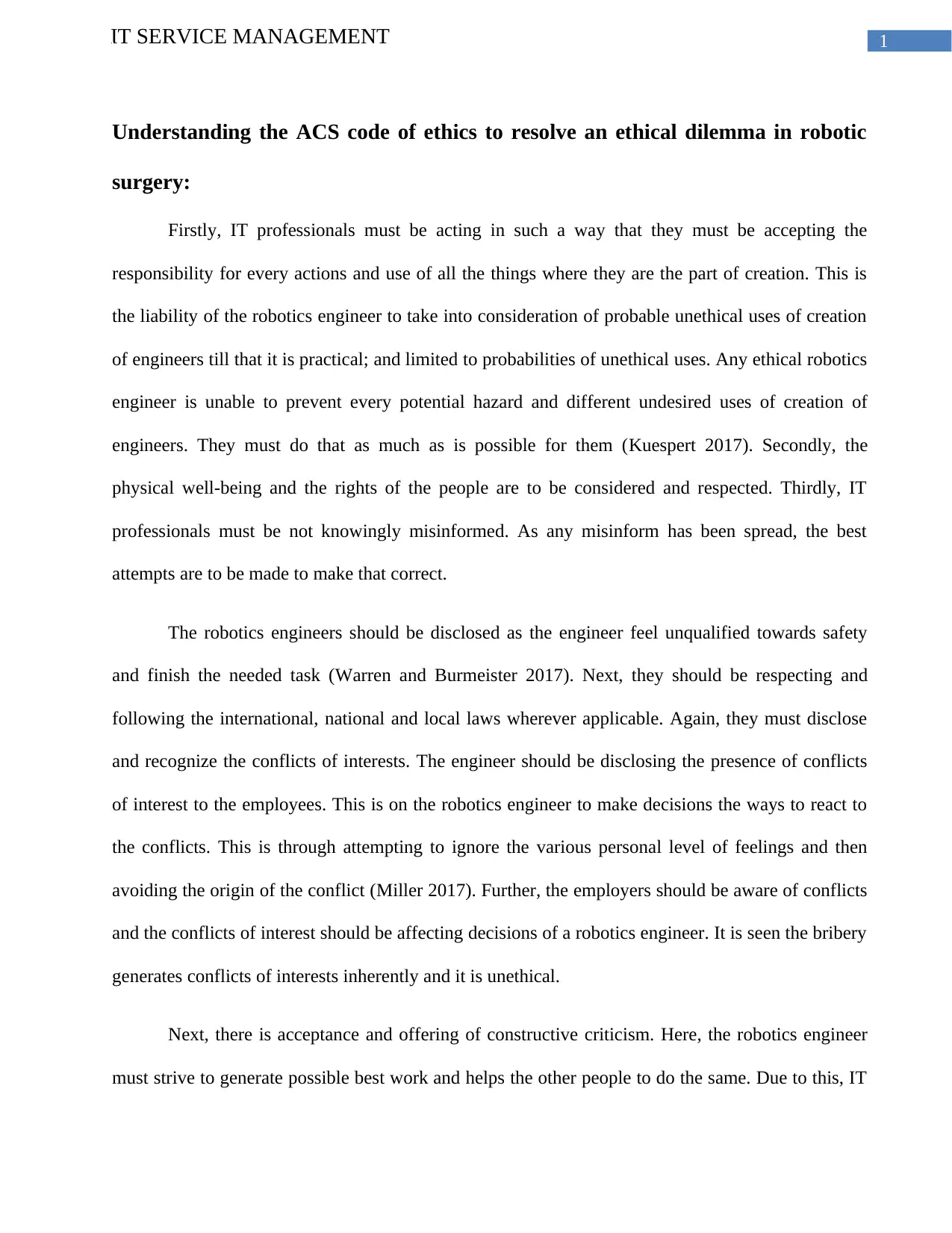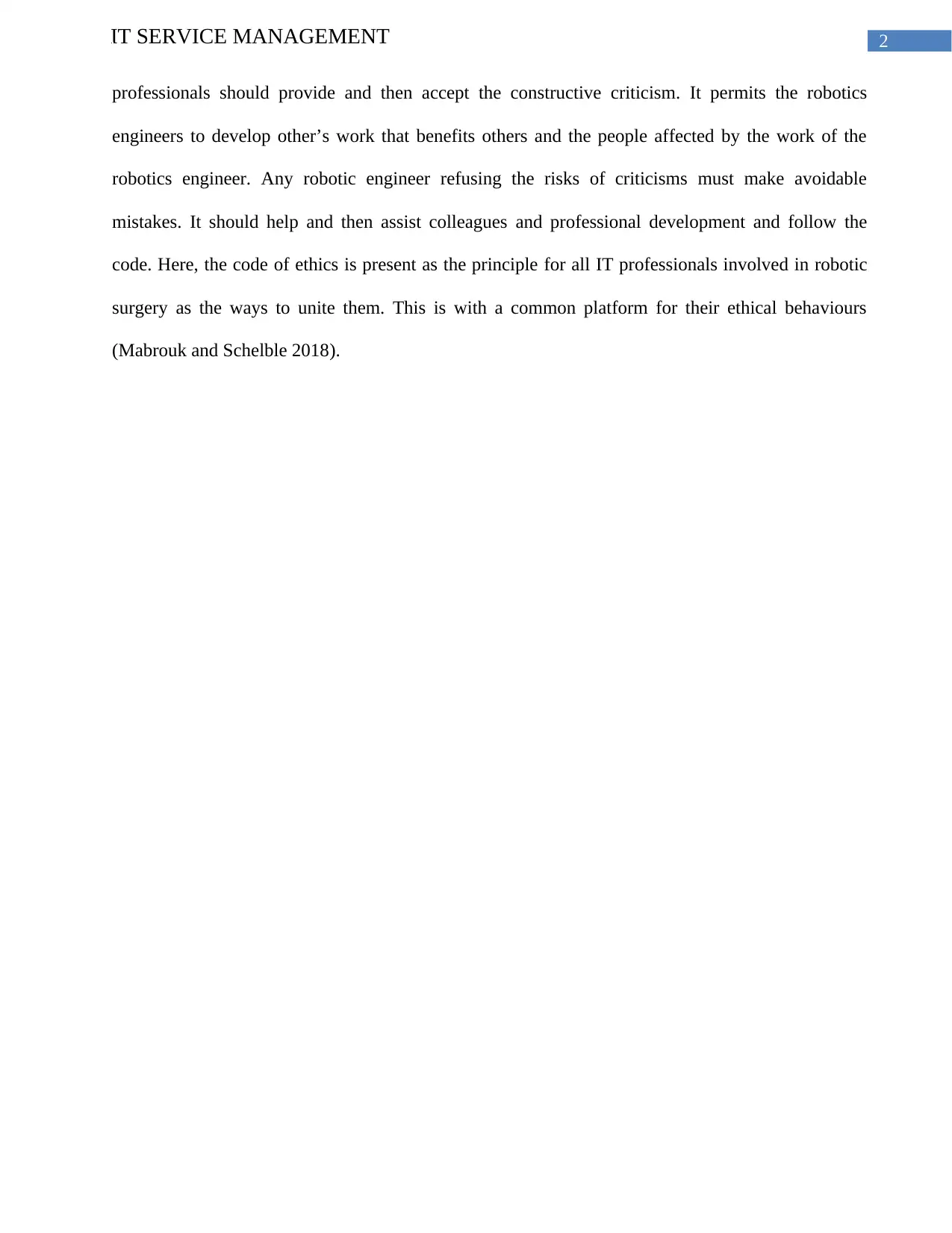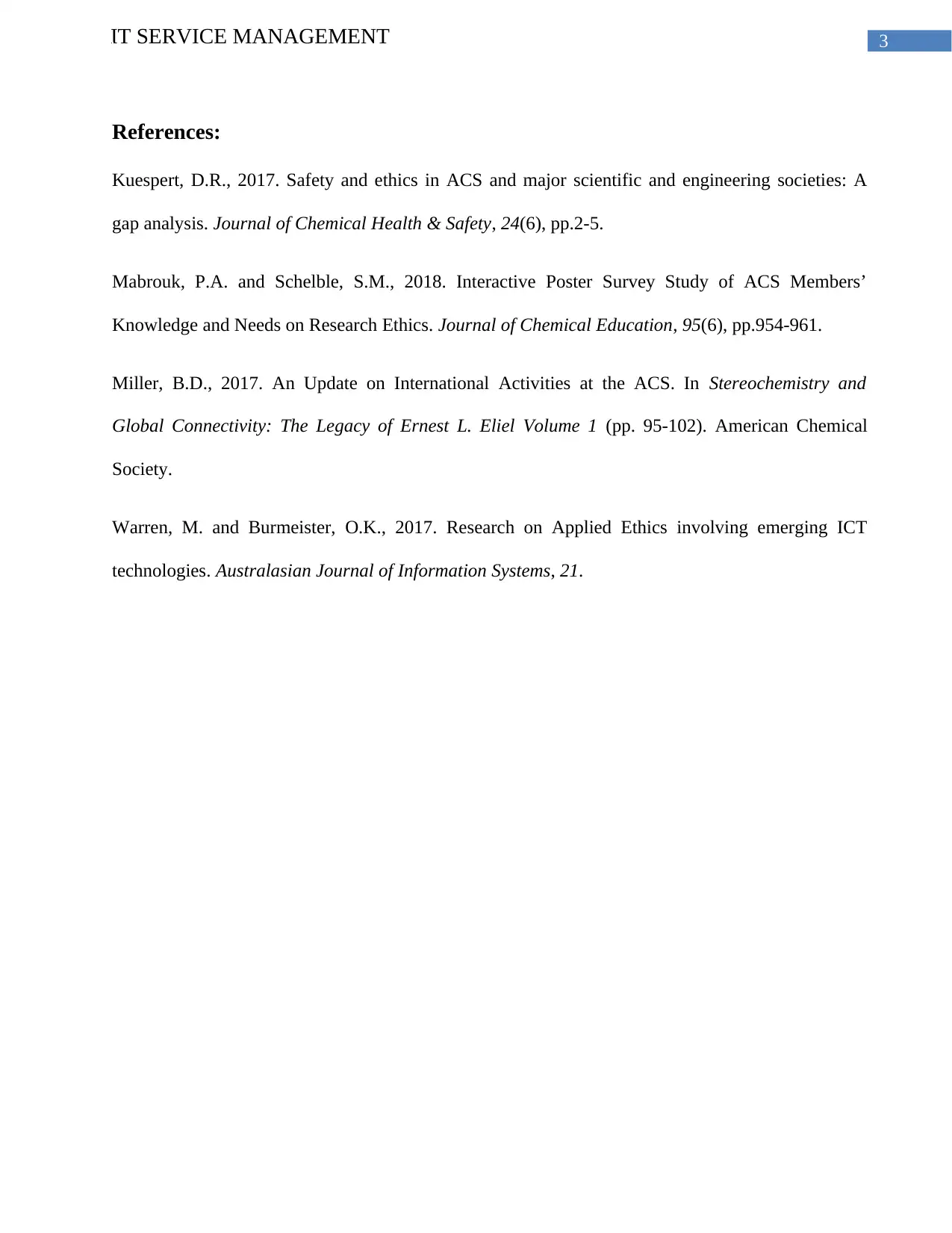Ethical Analysis of IT Service Management in Robotic Surgery
VerifiedAdded on 2022/09/26
|4
|633
|15
Report
AI Summary
This report delves into the ethical considerations within IT Service Management, specifically in the context of robotic surgery. It emphasizes the importance of adhering to the ACS code of ethics, highlighting key principles such as accountability, respect for human well-being, avoidance of misinformation, adherence to laws, disclosure of conflicts of interest, and acceptance of constructive criticism. The report underscores the responsibility of IT professionals, particularly robotics engineers, to anticipate and mitigate potential ethical issues arising from their work. It stresses the importance of ethical behavior, continuous professional development, and collaboration to ensure patient safety and maintain professional integrity within the field. The references provided offer further insights into the ethical frameworks and challenges within IT and robotics.
1 out of 4







![[object Object]](/_next/static/media/star-bottom.7253800d.svg)